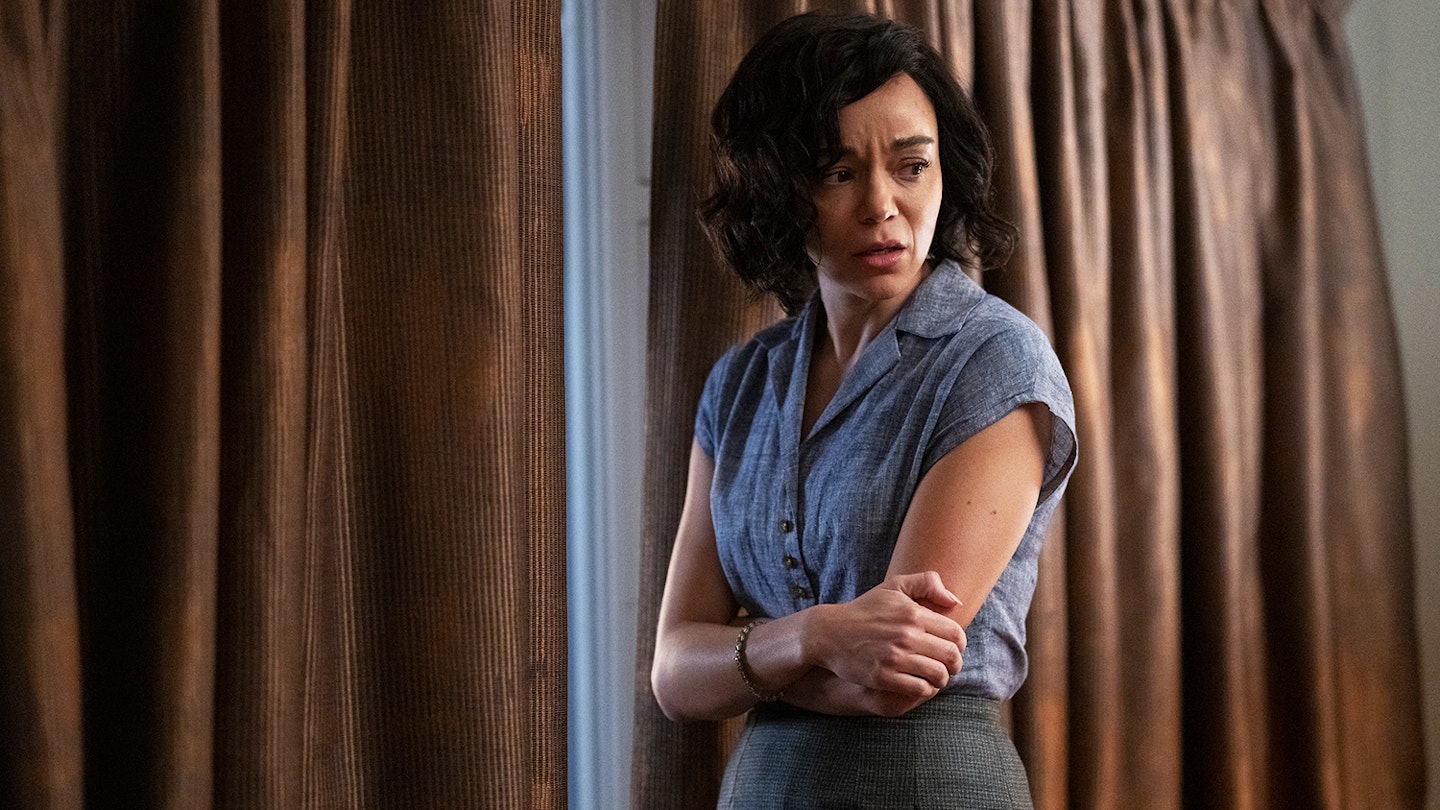As a suburban social horror filtered through a distinctive Black lens, comparisons between first-time writer-director Nathaniel Martello-White’s The Strays and Jordan Peele’s Get Out and Us are inevitable. In actuality, the better comparison would probably be recent Netflix offerings I Came By and His House; the three together form an eye-opening home invasion trilogy that reflects and exposes the deep-rooted fault-lines permeating British society. Ultimately, Martello-White’s film — for better and occasionally worse — is its own beast, a sometimes razor sharp, often scatty exploration of social (im)mobility, the rot festering beneath so-called civilised society, and internalised racism.

When we first meet Cheryl (Ashley Madekwe), she’s leaving a note for her husband on the fridge of their council estate home, walking out on an unfulfilling life that’s left her certain of only one thing: she wants more. She leaves, the frame widens, and then we catch up with her 20 years later — only now Cheryl is Neve, a trophy wife living in white suburbia who listens to Beethoven as she drives to her cushy job at her kids’ (Maria Almeida and Samuel Paul Small) private school.
Before long, however, we see that the early aspect ratio shift is just one of many ways Neve’s horizons have only superficially broadened. Her wigs can be as pristine as she likes, but still itch like hell as they remind her of the curls she conceals; she can pay for lunches out without tipping and host fancy galas, but other mums only deign to say she’s “practically” one of them; and she’ll still spend her mornings powdering her face to blend in to white suburbia, code-switching so hard that her cool facade cracks whenever her husband says the word “Black” aloud or her two children dare show pride in their colour. Neve is always one false move (or one true move, more accurately) from exposing herself; the arrival of two ghosts from her past simply escalates her undoing.
It builds towards one of the most jaw-slackening final frames you'll see all year.
Split into four time-jumping chapters, the actual plot here is only a few holes short of a trypophobic nightmare, with the who, where, when, and how of it all best not given too much thought. But while Martello-White’s crammed script leaves little room to really wrestle with Neve’s past, Ashley Madekwe’s intense, internalised performance(s) three-dimensionalise a character who could’ve otherwise skewed too symbolic. With a tremor of the jaw, a twitch in a tear-stifling eye, a forgot-to-be-clipped consonant, Madekwe indelibly captures the exhausting struggle of a woman who has perfected the art of fitting in almost anywhere except for her own skin. Director of photography Adam Scarth’s claustrophobic close-up camerawork and Emilie Levienaise-Farrouch’s combative score, never conforming to the rhythms Neve has tried to impose on her life, augment Madekwe’s performance perfectly.
As the two enigmatic figures tethering Neve to her past life, Rocks breakout Bukky Bakray and newcomer Jorden Myrie follow Madekwe’s lead, reading between their lines to find the deeper-lying truths of their characters. The external embodiment of Cheryl’s guilt and Neve’s shame, Abi (Bakray) and Marvin (Myrie) nimbly navigate profound heartache and palpable rage, the eventual revelations that come about them suggesting a bolder version of this story may centre their characters instead.
As messy and loosely drawn as the journey towards the film’s home invasion climax may be — outside of the leading trio you’ll struggle to remember the names of any other character you meet here, let alone care for their well-being (probably for the best) — everything builds towards one of the most jaw-slackening final frames you’ll see all year. At the end of a film that frustrates most not for lack of ideas, but rather Martello-White’s struggle to find a way to focus them, The Strays’ closing tableau is such a wickedly-delivered, precision-engineered punchline that you’ll be left grinning and grimacing in equal measure.
